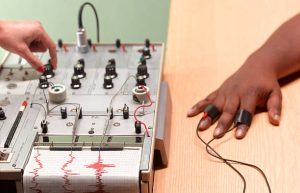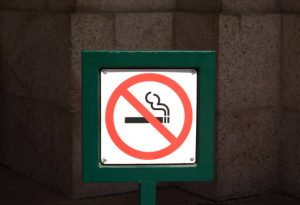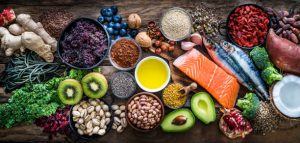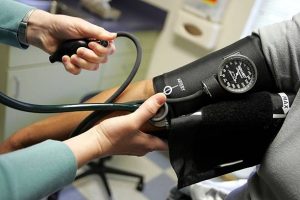Hypertension is simply high blood pressure (when the blood pressure is too high). It increases the risk of heart, kidney, brain and other diseases.
RISK FACTORS OF HYPERTENSION
The following can increase the risk of high blood pressure:
1) Eating unhealthy diets (excessive salt consumption, intake of diets high in saturated and trans fat, low intake of vegetables and fruits, low intake of potassium)

Photocredit:gettyimages.com
2) Consumption of tobacco, cocaine, amphetamines and alcohol

Photocredit:gettyimages.com
3) Lack of physical activity which increases the risk of being overweight
4) Being overweight or obese

Photocredit:gettyimages.com
5) Family history of high blood pressure
6) Age- the risk of high blood pressure increases with age.
7) High level of stress
8) Chronic conditions like kidney disease, diabetes
9) Pregnancy
10) Obstructive sleep apnea

Photocredit:gettyimages.com
11) Certain medications like birth control pills, pain relievers, etc.
12) Congenital diseases like heart defects
13) Thyroid disorders like goitre (abnormal enlargement of the thyroid gland)

Photocredit:gettyimages.com
SYMPTOMS OF HYPERTENSION
1) Nosebleeds

Photocredit:gettyimages.com
2) Shortness of breath

Photocredit:gettyimages.com
3) Fatigue

4) Serious headaches

Photocredit:gettyimages.com
5) Nausea

Photocredit:gettyimages.com
6) Vomiting

Photocredit:gettyimages.com
7) Chest pain

Photocredit:gettyimages.com
8) Dizziness

Photocredit:gettyimages.com
9) Irregular heart rhythm

Photocredit:gettyimages.com
10) Tinnitus (buzzing/ringing in the ears)

Photocredit:gettyimages.com
COMPLICATIONS OF HYPERTENSION
Uncontrolled and untreated high blood pressure can lead to the following complications:
1) Heart failure (this happens when the heart cannot pump enough blood and oxygen to other vital organs)

Photocredit:gettyimages.com
2) Heart attack (this happens when the blood supply to the heart is blocked and heart muscle cells die from lack of oxygen)

Photocredit:gettyimages.com
3) Stroke

Photocredit:gettyimages.com
4) Alzheimer’s disease
5) Rupturing of blood vessels in the eyes
6) Enlargement of an artery which can burst and lead to internal bleeding and stroke
7) Narrowing of one or more arteries that carry blood to the kidneys
8) Severe chest pain
9) Irregular heartbeats that can lead to sudden death
DIAGNOSIS OF HYPERTENSION
High blood pressure can be diagnosed with the use of sphygmomanometer.
Blood pressure is classified as follows by the American Heart Association:
1) Normal blood pressure= 120mmHg/80mmHg ( systolic is 120mmHg and diastolic is 80mmHg)
2) Elevated blood pressure= >120mmHg/< 80mmHg ( systolic is greater than 120mmHg and diastolic is less than 80mmHg
3) Stage I high blood pressure= 130-139mmHg/80-89mmHg( systolic is between 130-139mmHg and diastolic is between 80-89mmHg)
4) Stage II high blood pressure= >140mmHg/>90mmHg (systolic is 140mmHg or greater than 140mmHg and diastolic is 90mmHg or greater than 90mmHg)
PREVENTION OF HYPERTENSION
The following are ways by which hypertension can be prevented.
1)
Eat healthy diets which contain fruits, vegetables, whole grains, fish, poultry and low-fat dairy food

Photocredit:gettyimages.com
2) Reduce salt intake
3) Low intake of saturated fat and trans fat

Photocredit:Paul J. RICHARDS / AFP via Getty Images
4) Regular intake of diets containing potassium

Photocredit:gettyimages.com
5) Maintain healthy weight

Photocredit:gettyimages.com
6) Increase physical activity
7) Reduce alcohol intake
8) Avoid the intake of tobacco

Photocredit: Robert Alexander/Getty Images
9) Manage stress by getting plenty of sleep, exercising regularly, breathing deeply and meditating

Photocredit:gettyimages.com
10) Practise slow and deep breathing
11) Take food supplements like fibres, minerals, folic acid, garlic and cocoa.

Photocredit:gettyimages.com
MANAGEMENT OF HYPERTENSION
For people with high blood pressure, the following can be done to control and manage it
1) Adopt healthy habits like eating healthy foods, losing excess weight, regular physical activity, reducing alcohol intake and avoiding the intake of tobacco
2) Take your medications regularly and properly
3) Maintain regular visits to the doctor

Photocredit:gettyimages.com
4) Manage stress physically and mentally by sleeping more, relaxing your body and mind and maintain good relationships

Photocredit:gettyimages.com
5) Check your blood pressure regularly

Photocredit: Joe Raedle/Getty Images
6) Treat and manage other health conditions
Aanuoluwapo is a nursing student of Bowen university. She desires to be a caregiver for people and helps to manage physical needs, prevent illness, and treat health conditions.
Post Views: 538






























